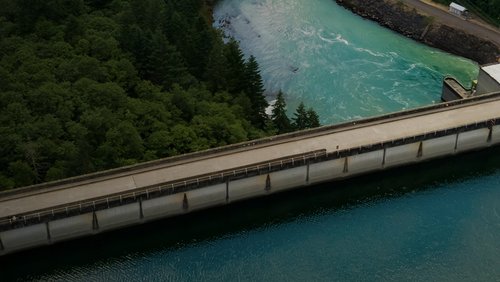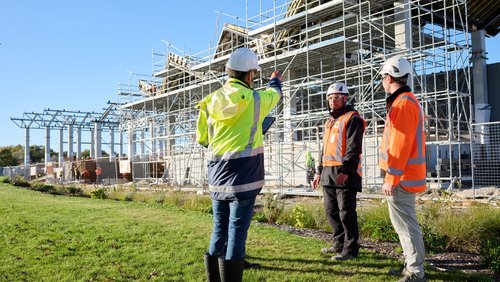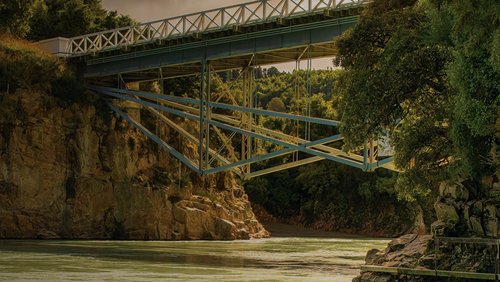21 Oct 2024
Meet Mike Duke, Dean of Engineering at the University of Waikato. Learn about what sparked his initial interest in engineering, his role and much more.
What is your role at the University of Waikato?
I am the Dean of Engineering and much of my time is spent dealing with the day to day operation of the School and implementing strategic plans to improve it. I also teach engineering design and product innovation using project based learning, which I really enjoy.
Who or what inspired you to enter the wonderful world of engineering?
I always liked inventing, designing and problem solving. Engineering allowed me to do this and get paid for it, so it was a pretty easy decision that I have never regretted. I have not changed, I am always looking for problems to solve and enjoy working in teams solving them.
Tell us about three of your career highlights.
The development of the engineering programmes at the University of Waikato has been my longest term project. Seeing the number of students grow, facilities and programmes improve and our students graduate and contribute to New Zealand industry has been very satisfying. I have been very privileged seeing and helping the School of Engineering develop into a thriving community.
In the 1990's I founded a team designing and building solar powered cars and racing them around the world. It was great being part of a revolution in technology and creating sci-fi looking vehicles that ran on sunlight. A special bonus was that one of our solar cars became a permanent exhibit in the National Science Museum, London.
I co-founded and was technical director of a solar product development company, designing and building prototype solar products for clients. This was a really creative period and was at a pioneering time for photovoltaic products. We developed many products, but our most successful was the Sunmount system for installing panels on flat roofs. The Sunmount was a good example of having to find a solution to a problem and turn it into a commercially successful product.
Engineering is constantly changing and evolving. How do you ensure the engineering courses taught at the University of Waikato incorporate new ideas and learnings?
There are three main ways we do this; all staff are research active and expected to include in their teaching the latest thinking and knowledge in their field. Feedback from our Industry Advisory Board helps guide content to ensure we keep up to date with technology changes and meet industry needs. When we have rapidly emerging technologies like AI we initially use Special Topics papers that allow us to develop the teaching. As an example, we will run our first AI and Engineering Special Topics paper in 2025.
If a student is having difficulty coming up with a solution to an engineering problem, what advice would you give them?
There is no one solution to this, but I am an advocate of small teams tackling problems using a white board, access to information, and an open mind.
Why do you think that it is important that students come to lectures and tutorials in person?
We run our all programmes on campus with a lot of labs, workshops, groupwork and project based learning, so students are expected to attend all parts of the papers. We also investigated the relationship between attendance and success. No surprises, those students who attended all the learning activities did far better than those who did not.
Complete the following sentence. Engineers bring to the world… innovative solutions, technological advancements, and the essential infrastructure that enhances quality of life.
Why are you a member of Engineering New Zealand?
Engineering New Zealand offers me and the engineering community professional recognition, networking opportunities, career development resources, advocacy for the engineering profession and very importantly for universities, accreditation of engineering degrees.
What is your favourite piece of engineering in Hamilton?
The WoodWeta giant hogging machine developed by Rodney Sharp of Progressive Hydraulics.




